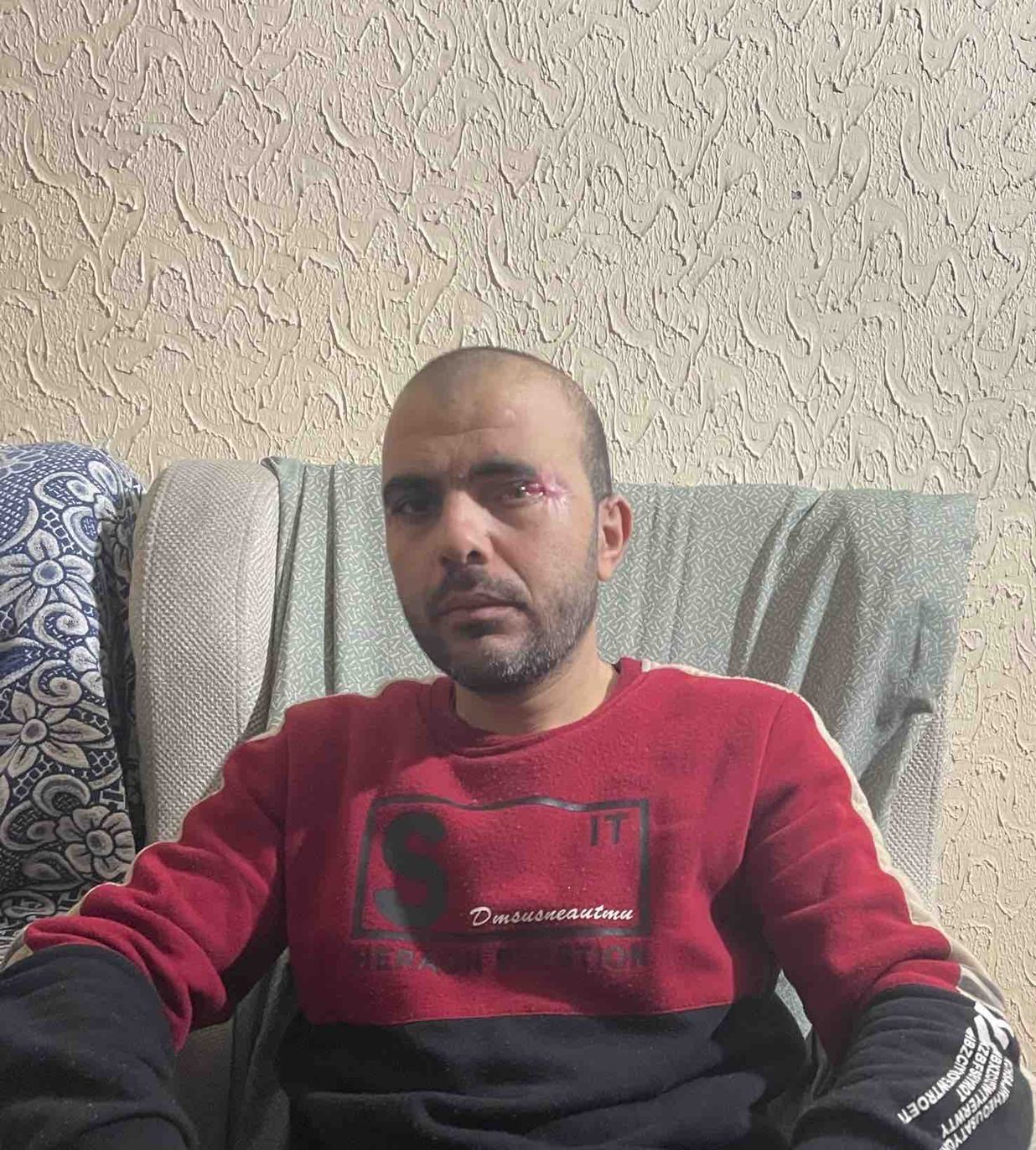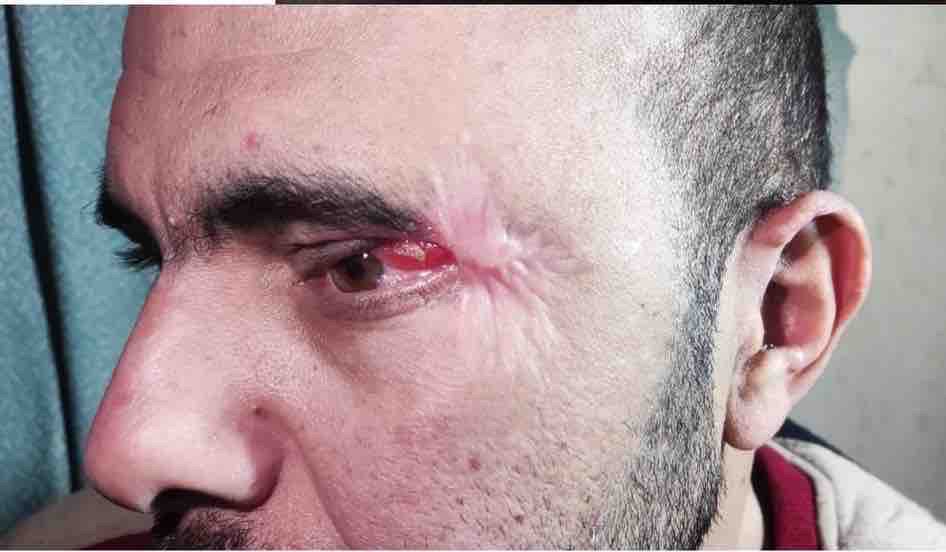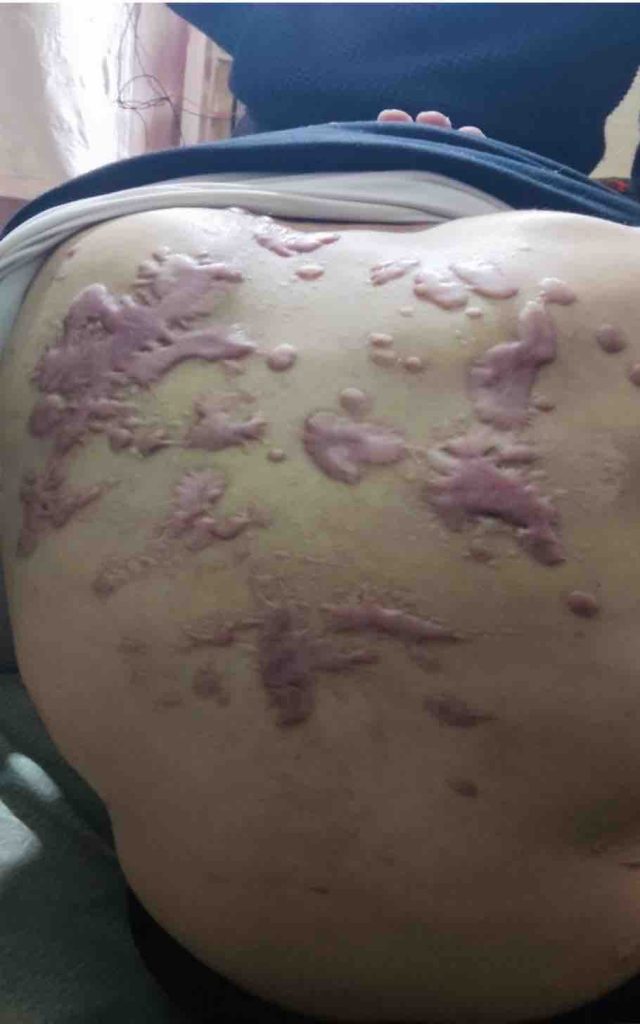
Mohammed Nawaf Ahmed Abu Tawila, 36 years old, married, resident of Al-Shuja’iya neighborhood, Gaza.
Testimony Date: February 27, 2025
On October 10, 2024, three days after the Israeli military launched its assault on the Gaza Strip, as the relentless bombardment intensified, all residents of my neighborhood on Al-Mansour Street in Al-Shuja’iya evacuated. My wife, Noor Abu Tawila, 27 years old and pregnant at the time, and I decided to flee. She later gave birth during the war to our son, Ayash, who is now one year old. That day, we sought refuge at the home of our relatives in the southern Al-Rimal neighborhood. The war continued with extreme brutality, with bombardments everywhere, and we remained in that house throughout.
On March 13, 2024, at around 2:00 a.m., without any prior warning, we were suddenly surrounded by a large number of Israeli tanks and soldiers who besieged the building we were staying in. We remained trapped inside for five consecutive days, surviving only on thyme, olive oil, and water.
On March 18, 2024, at approximately 8:00 p.m., Israeli forces blew open the entrance of the building we had taken refuge in. A pharmacist who lived in the building, whose name I do not know, spoke to the soldiers in English. The soldiers then ordered all men to exit without clothing, holding their identification.
I stepped out wearing only my undergarments (boxers) and was detained in a small room along with 20 others, while the women and children were held in the living room. After ten minutes, a soldier entered and gestured for me to follow him. He took me to the adjacent Yazji building, which served as a gathering point for Israeli soldiers. There, they confined me in a room in one of the apartments, handcuffed behind my back with plastic ties, shackled my legs, and blindfolded me. I remained alone in that room for three days.
On the first night of my detention, they began interrogating me. A soldier asked about captured Israeli soldiers and my whereabouts on October 7. I was seated, still bound, and when I responded that I did not know, he began beating me—punching and kicking my face and striking me over 20 times. He also hit my back more than ten times with the butt of his rifle. Then, he brought a large cooking pot, filled it with chlorine, Aqua fortis nitric acid, and dishwashing liquid, and forcibly submerged my head in it. I collapsed to the ground in agony. They continued kicking me in the face and back.
Later, they retrieved a green plastic bottle containing Aqua fortis nitric acid. I knew this because the apartment where I was held had cleaning supplies, including aqua fortis nitric acid. They poured it over my back. When one bottle was empty, they brought another, pouring it over my head and back. In total, they emptied approximately 20 bottles onto me. Afterward, a soldier sprayed air freshener over my burned skin, then took a lighter and set my body on fire. I thrashed in pain, desperately trying to extinguish the flames. He repeated this a second time.
The following morning, after a shift change, the new soldiers saw me in my burnt state. They poured bottles of water over me but kept my hands tied in front of me, leaving my burns and wounds untreated for the entire day. On the third day, at around 6:00 p.m., the soldiers transported me in a military jeep, accompanied by five soldiers, to a detention site consisting of barracks in the Sufa area, as I later learned. We arrived at approximately 10:00 p.m.
The next morning, they took me to Soroka Hospital, conducted a CT scan, treated my burns, and then returned me to the barracks on the same day. I remained in the barracks for 12 days, my hands tied behind my back, blindfolded, and forced to kneel from 5:00 a.m. until around 10:00 p.m., when they finally allowed us to sleep—despite my severe medical condition. After this, they moved me to a field hospital next to the barracks, consisting of tents, where I remained for about 20 days. There, they changed my dressings and provided treatment, but I was kept handcuffed to the bed, both by my wrists and ankles.
Eventually, they returned me to the barracks.
On June 15, 2024, Israeli forces transferred me to Ofer Prison, where I remained for a month and a half. During this time, I began experiencing bleeding from my left eye. They transferred me to Ramla Hospital, where I stayed for 15 days and received medical treatment. I was kept on a hospital bed without cuffs, but guards were stationed at the door. Afterward, they returned me to Ofer Prison, placing me in Section 23, where I remained for seven months. During this period, I was neither interrogated nor beaten, except for being attacked three times by guard dogs. In one instance, a dog struck me on the head with its metal muzzle, causing severe swelling.
Regarding food, the portions were scarce. For lunch, each prisoner received only two or three spoonfuls of rice and two spoonfuls of hummus. On Saturdays and Tuesdays, we were given a small piece of chicken breast and two spoonfuls of rice. Throughout the day, we were provided with only eight thin slices of toast.
On February 5, 2025, I was transferred from Ofer Prison to Negev Prison, where I remained for 10 days before being released on February 15, 2025, as part of a prisoner exchange deal. I was transported, along with other detainees, by bus to the European Hospital, where doctors assessed my condition.
I now suffer from blurred vision in my left eye, with drooping of the upper eyelid and tightness on the outer side of the eye. Additionally, I have approximately eight irregularly shaped hypertrophic scars, ranging from 3 to 10 cm in length, on the upper and middle parts of my back. I urgently require medical treatment abroad for reconstructive surgery to correct the eyelid drooping and alleviate the skin contraction around my right eye, as well as a skin grafting procedure to treat the scars on my back.


[…] in the West Bank (some since released), with uncountable ‘thousands’ arrested from Gaza. The testimony of those who have been released indicates that their treatment has never been so […]